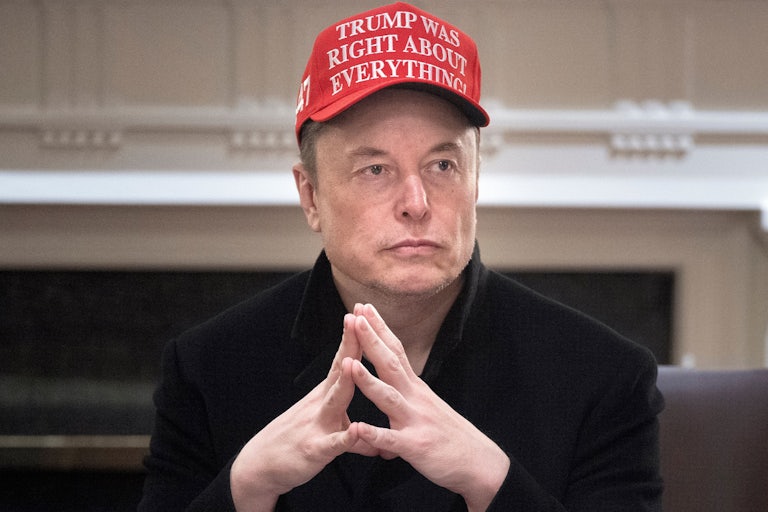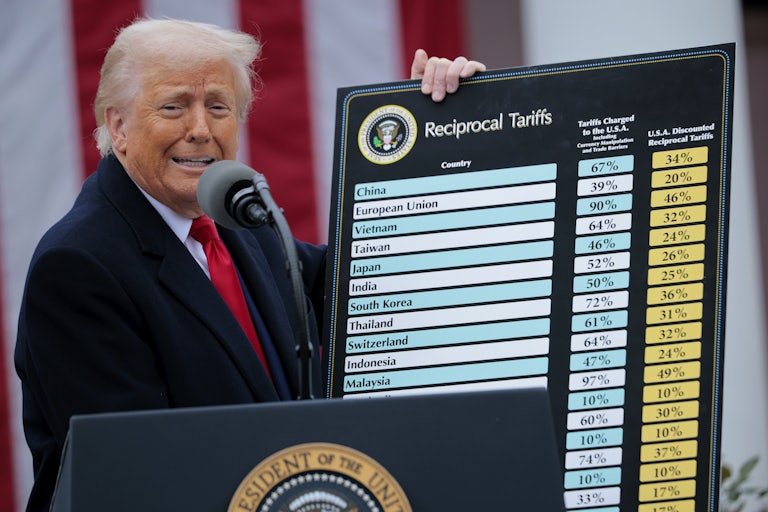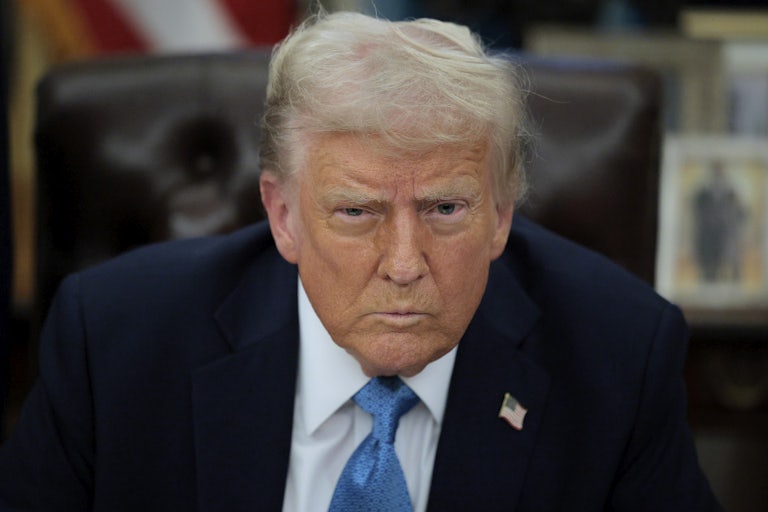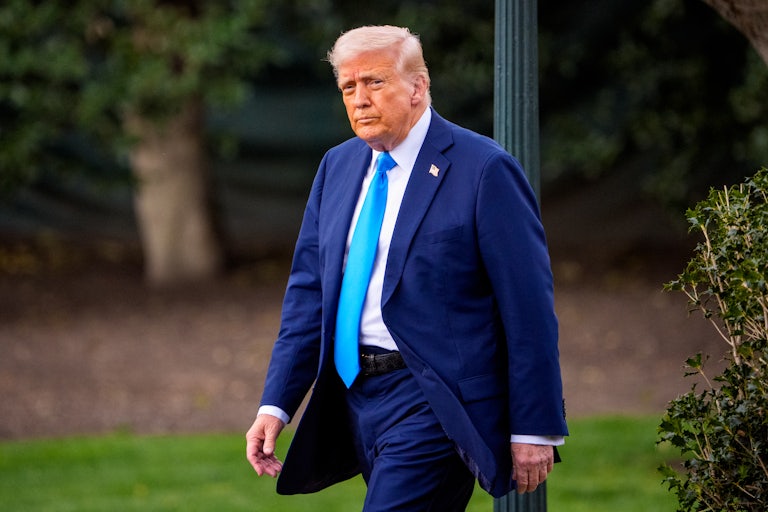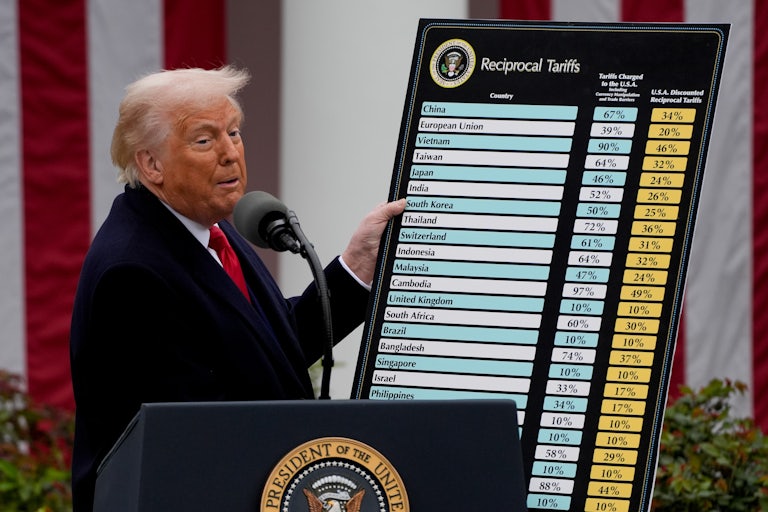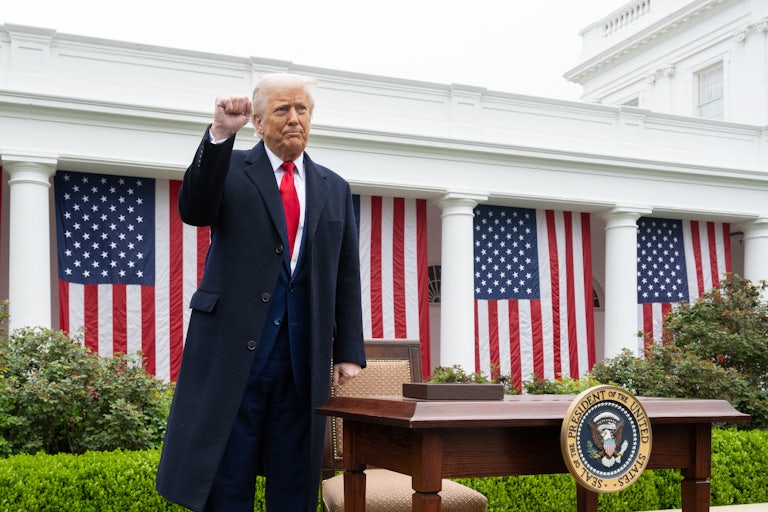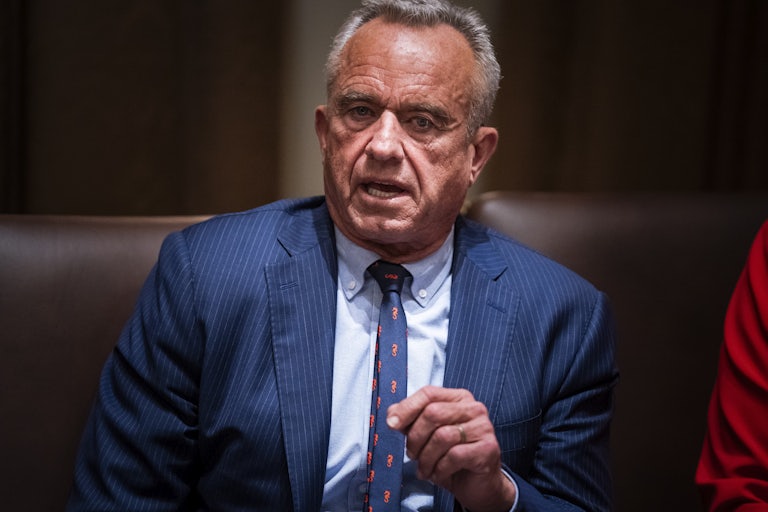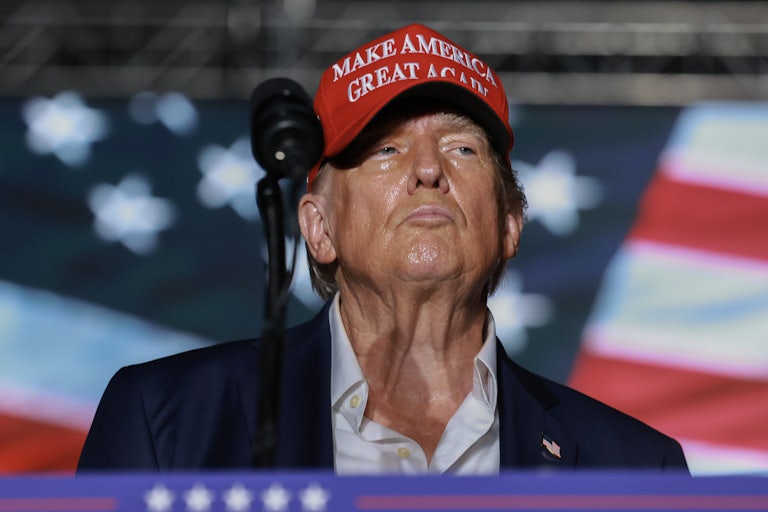Trump Has a New Target for His Mass Deportations: U.S. Citizens
Donald Trump is delighted by the chance to expand his mass deportations.
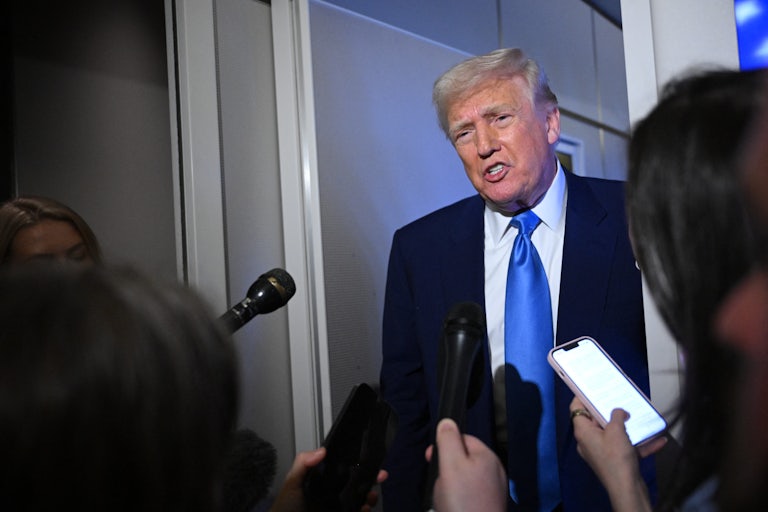
“Well, I love that,” Trump replied.
“If we could take some of our twenty-time wise guys that push people into subways and hit people over the back of the head, and purposefully run people over in cars, uh if he would take them, I would be honored to give them,” Trump continued.
“I don’t know what the law says on that, but I can’t imagine the law would say anything different,” Trump said, claiming that it could likely save the U.S. money to house their prisoners in El Salvador. In fact, the law does say something different: It is illegal to deport U.S. citizens.
“I would only do according to the law,” Trump said. “But I have suggested that, you know, ‘Why should it stop just at people who cross the border illegally?’”
There are significant legal barriers to the deportation of U.S. citizens, even if they are incarcerated in the federal prison system. One legal expert told ABC News that removal to El Salvador could violate the Eighth Amendment protection from “cruel and unusual punishment,” which prevents the U.S. government from inflicting humiliating or torturous punishments for federal crimes.
U.S. Code 3621 requires an incarcerated person in the custody of the Bureau of Prisons to be able to be transported back to court—which obviously would be impossible if the prisoner is removed from U.S. custody to El Salvador, where the U.S. government is already claiming that it cannot remove a man wrongfully deported there. It also requires certain standards for prisons, which cannot be met in a foreign prison such as El Salvador’s CECOT, which is notorious for human rights abuses.
U.S. Code 4100, which established the Prisoner Transfer Program, says that an incarcerated person can only be transferred out of the U.S. to the country where they are a citizen or national, and can only be removed from the U.S. with their consent. A U.S. citizen can only be transferred to the United States.
The U.S. also has a law prohibiting the government “from expelling, extraditing, or otherwise effecting the involuntary return of a person to a country in which there are reasonable grounds for believing the person would be in danger of subjection to torture,” which one federal judge has already argued could apply to all removals to the notorious prison in El Salvador where Trump has sent deportees.
In February, when Bukele first offered to take U.S. citizens as part of a deal to take the alleged gang members the U.S. government has designated terrorists, Secretary of State Marco Rubio said it was a “very generous” offer but that there were “obviously legalities involved,” like that pesky U.S. Constitution.
Meanwhile, Trump was initially enthusiastic about the idea.
“These are sick people. If we could get them out of our country, we have other countries that would take him. They could,” Trump said at the time.
At the time, Aaron Reichlin-Melchick, a senior fellow at the American Immigration Council, rebuked Bukele’s offer in a post on X: “Bukele is undoubtedly trolling, but to emphasize again: this is so incredibly illegal that there’s not even a hint of possible way to do it under any circumstances whatsoever. It violates international law and the U.S. constitution. Period. End of story.”
But the Trump administration hasn’t seemed particularly interested in following the letter of the law, as it invoked a wartime law to suspend due process and carry out the mass deportation of over 100 Venezuelan nationals in likely violation of a court order. The government claimed that the deportees were members of violent gangs, but it seems that several of them just had innocuous tattoos.
This story has been updated.
